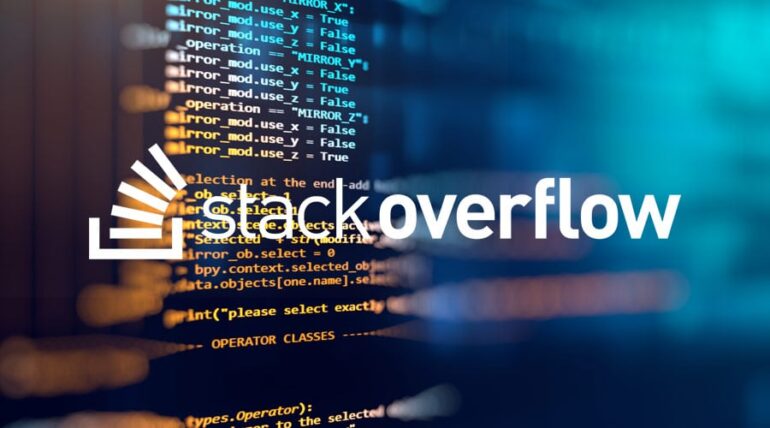- Stack Overflow launches API requiring AI models to attribute sources, introducing a paid access model.
- Google leverages Stack Overflow’s API for its Gemini models and cloud storage, aiming for a synergistic collaboration.
- Overflow API empowers Gemini to generate code and address programming queries, integrating Stack Overflow’s curated content.
- Stack Overflow demands compensation for its vast content repository of over 58 million questions and answers.
- Despite a decline in traffic, Stack Overflow emphasizes its relevance, highlighting the need for fresh human-generated data in the AI era.
Main AI News:
In a bold move, Stack Overflow has introduced an API mandating all AI models utilizing its coding Q&A content to attribute sources back to its posts. This move isn’t without its price tag, though. “All products leveraging public Stack Overflow data must attribute back to the most influential posts shaping the model’s summary,” the company emphasized in a recent announcement.
The Overflow API emerges as a robust knowledge repository, empowering developers to construct more precise and supportive code-generation models. Notably, Google has announced its utilization of the service to glean relevant insights from Stack Overflow via the API, seamlessly integrating this data with its cutting-edge Gemini models and cloud storage console.
Thomas Kurian, CEO of Google Cloud, articulated the significance of this collaboration, stating, “Google Cloud and Stack Overflow will empower developers to harness AI more effectively on their preferred platforms, amalgamating extensive insights from the Stack Overflow community with new AI capabilities, bolstered by Vertex AI and Google Cloud’s secure infrastructure.”
Through the Overflow API, Gemini gains the prowess to craft code and address programming queries by drawing upon the wealth of content hosted and curated on Stack Overflow. Concurrently, developers gain direct access to this platform’s insights within the Google Cloud Console, enabling seamless interaction with cloud and infrastructure-related inquiries.
While Google has iterated its strategy of utilizing public resources for model training, Stack Overflow contends that due compensation is warranted for its extensive content repository, comprising over 58 million questions and answers.
“In the AI epoch, Stack Overflow asserts that the bedrock of reliable and precise data is pivotal to the construction of technological solutions, with millions of developers worldwide relying on our platform as a premier source of information underscored by community attribution,” emphasized CEO Prashanth Chandrasekar.
Despite recent developments like the “general moderator strike” and the emergence of OverflowAI, Stack Overflow remains committed to its core principles. As developers increasingly turn to chatbots for solutions, Stack Overflow insists its relevance persists, emphasizing the indispensability of fresh human-generated data for AI.
“The essence of quality content lies in its human element. Generative AI can only echo what’s already been published—it lacks the ability to offer insights on content created post its last data ingestion. Humans, on the other hand, furnish current information, discern patterns early on, and infuse contextual signals regarding knowledge’s social value within a community,” concluded Stack Overflow.
Conclusion:
The introduction of Stack Overflow’s API mandate signifies a significant shift in the market dynamics surrounding AI coding resources. With the requirement for attribution and the imposition of costs, developers and AI modelers must reconsider their reliance on freely available data sources. Stack Overflow’s partnership with Google underscores the increasing value of curated content in AI development. This move suggests a trend towards the monetization of knowledge repositories, potentially reshaping how developers access and utilize coding resources in the future.

